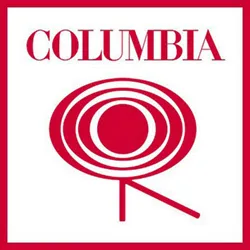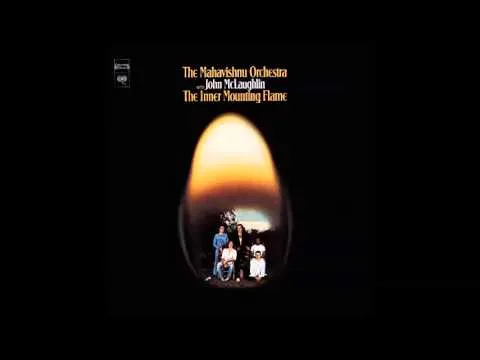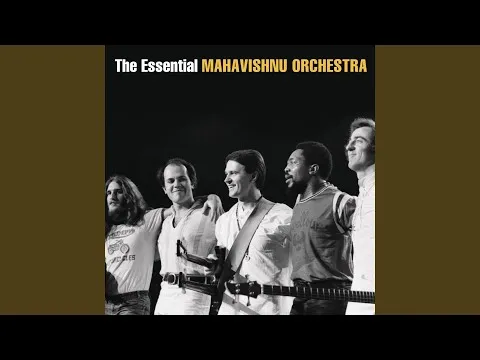You Know You Know
Mahavishnu Orchestra: John McLaughlin (guitarra eléctrica), Jerry Goodman (violín), Jan Hammer (teclados, órgano), Rick Laird (bajo eléctrico) y Billy Cobham (batería, percusión). Extraído del álbum The Inner Mounting Flame (1971).
En 1975 John McLaughlin decidió seguir explorando el misticismo oriental y creó la banda Shakti, que significa «poder, inteligencia creativa y belleza», con él mismo a la guitarra acústica y los músicos indios L. Shankar al violín, Ramnad Raghavan al mridangam (tambor alargado que se puede tocar por los dos lados), T. H. Vinayakram al mridangam y el ghatam (instrumento de percusión consistente en un pote de barro) y Zakir Hussain a la tabla (dos pequeños tambores). Tocaban música hindú con elementos de jazz y actuaron de manera extensa durante dos años. Su primer álbum fue Shakti with John McLaughlin (1975) en el que McLaughlin toca el primer tema a una velocidad trepidante mientras sus compañeros lo siguen con gran destreza y disciplina; en el segundo ofrecen un ambiente meditativo y el tercero es un largo raga en el que el guitarrista utiliza su estilo occidental acelerado, pero deja también espacio para que los demás instrumentistas demuestren su experiencia. El raga es una estructura melódica en la que se presenta una composición y una improvisación basadas en una serie de 5 a 7 notas y patrones rítmicos específicos. En 1976 grabaron A Handful of Beauty sin Raghavan tocando de forma sutil e integrada, y proporcionando una versión más lírica de su fusión Este-Oeste; y por último lanzaron Natural Elements (1977), en el que también tocan de forma relajada. Con este grupo, McLaughlin introdujo la música india a los seguidores del jazz.
In 1975 John McLaughlin decided to continue exploring oriental mysticism and created the band Shakti, which means “power, creative intelligence and beauty”, with himself on acoustic guitar and Indian musicians L. Shankar on violin, Ramnad Raghavan on mridangam (long drum which can be played on both sides), TH Vinayakram on mridangam and ghatam (percussion instrument consisting of a clay pot) and Zakir Hussain on tabla (two small drums). They played Hindu music with jazz elements and performed extensively for two years. Their first album was Shakti with John McLaughlin (1975) in which McLaughlin plays the first track at a breathtaking speed while his peers follow him with great dexterity and discipline; in the second tune they offer a meditative atmosphere and the third is a long raga in which the guitarist uses his accelerated western style, but also leaves room for the other instrumentalists to demonstrate their experience. The raga is a melodic structure in which a composition and an improvisation are presented based on a series of 5 to 7 notes and specific rhythmic patterns. In 1976 they recorded A Handful of Beauty without Raghavan playing in a subtle and integrated way, and providing a more lyrical version of their East-West fusion; and finally they released Natural Elements (1977), in which they also play in a relaxed way. With this group, McLaughlin introduced Indian music to jazz fans.
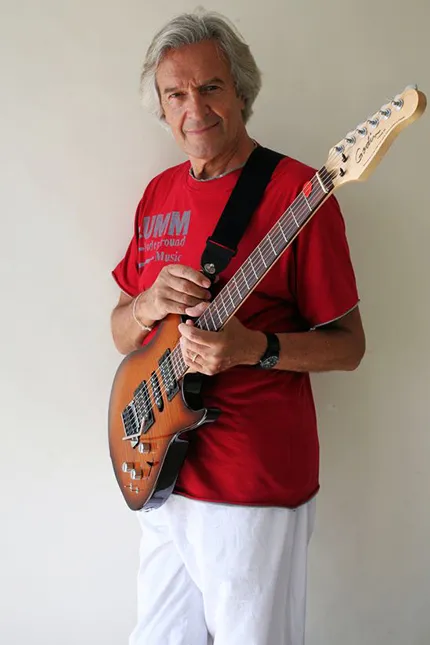
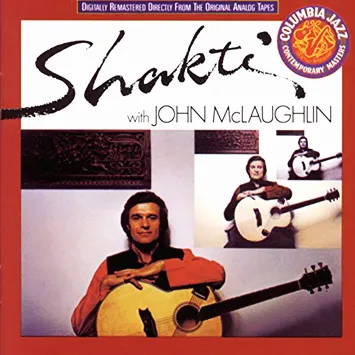
En 1976 McLaughlin colaboró en School Days del contrabajista y bajista eléctrico Stanley Clarke, que fundó en 1973 la banda de jazz fusión Return to Forever con el pianista y teclista Chick Corea. A finales de los años setenta volvió a su carrera en solitario y publicó Electric Guitarrist (1978), en el que regresa al jazz fusión, y Electric Dreams (1979), el único álbum con The One Truth Band, en el que L. Shankar volvía a tocar el violín y Tony Williams la batería. Después hizo una gira a dúo con el guitarrista francés de gypsy jazz Christian Escoudé. El gypsy jazz es una corriente del swing iniciada por el guitarrista gitano francés Django Reinhardt en París en los años 1930. En 1979 McLaughlin formó parte del trío de funk fusión Trio of Doom con Jaco Pastorius al bajo eléctrico y Tony Williams a la batería, pero solo realizaron un concierto que aparece en Trio of Doom (2007) y en el documental Havana Jam ’79 (2009). En 1980 McLaughlin se integró en Fuse One, un grupo de numerosos músicos no específicos que entraban y salían, y contribuyó en Fuse One (1980) y Silk (1981) para CTI Records. En 1981 grabó Belo Horizonte y en 1982 Music Spoken Here con la banda francesa The Translators, que combinaban instrumentos acústicos con sintetizadores.
In 1976 McLaughlin collaborated in School Days by double bassist and electric bassist Stanley Clarke, who founded the jazz fusion band Return to Forever in 1973 with pianist and keyboardist Chick Corea. In the late 1970s resumed his solo career and published Electric Guitarrist (1978), in which he returns to jazz fusion, and Electric Dreams (1979), the only album with The One Truth Band, in which L. Shankar played again violin and Tony Williams drums. Then he toured as a duet with the French gypsy jazz guitarist Christian Escoudé. Gypsy jazz is a swing trend initiated by French gypsy guitarist Django Reinhardt in Paris in the 1930s. In 1979 McLaughlin was part of funk fusion Trio of Doom with Jaco Pastorius on electric bass and Tony Williams on drums, but they only gave a concert that appears in Trio of Doom (2007) and in the documentary Havana Jam ‘79 (2009). In 1980 McLaughlin joined Fuse One, a group of numerous non-specific musicians who came and went, and contributed to Fuse One (1980) and Silk (1981) for CTI Records. In 1981 he recorded Belo Horizonte and in 1982 Music Spoken Here with the French band The Translators, which combined acoustic instruments with synthesizers.
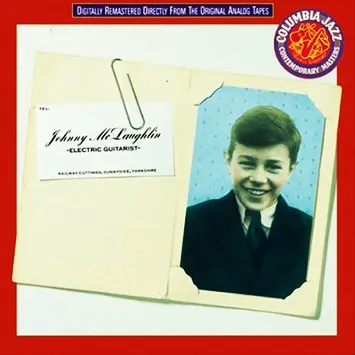
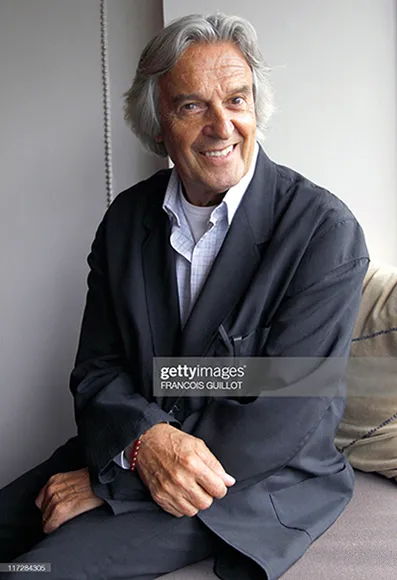
En 1981 salió a la venta Friday Night in San Francisco, en el que se registra una actuación celebrada en el Warfield Theatre de San Francisco en la que participó en el inusual formato de trío acústico con el guitarrista norteamericano Al Di Meola y el español Paco de Lucía. En él se une el jazz de McLaughlin y Di Meola con el flamenco del también virtuoso de Lucía. En 1983 repitieron la experiencia en Passion, Grace & Fire y en 1996 en The Guitar Trio: Paco de Lucia/John McLaughlin/Al Di Meola, pero grabando en estudio. En 1984 McLaughlin fundó la tercera edición de la Mahavisnu Orchestra con Bill Evans tocando el saxo tenor y soprano reemplazando al violín, y lanzaron Mahavishnu ese mismo año y Adventures in Radioland en 1987 con McLaughlin utilizando una guitarra digital con un sintetizador Synclavier. De 1985 a 1987 hizo conciertos en dúo con el bajista eléctrico Jonas Hellborg, algunos de los cuales fueron emitidos por radio y televisión, pero no hicieron ninguna grabación. En 1986 actuó junto con Wayne Shorter, Herbie Hancock y otros músicos en la película Round Midnight de Bertrand Tavernier en la que el saxofonista Dexter Gordon es el protagonista. En 1988 publicó The Mediterranean, en cuya cara 1 presenta una obra clásica neoromántica para guitarra y orquesta compuesta por él e inspirada en el Concierto de Aranjuez del español Joaquín Rodrigo con la London Symphony Orchestra, en la que improvisa en algunos pasajes; y en la cara 2 cinco piezas en dúo con la pianista de música clásica Katia Labeque en un ambiente íntimo.
In 1981 Friday Night in San Francisco went on sale, featuring a performance at the Warfield Theater in San Francisco where he participated in the unusual acoustic trio format with American guitarist Al Di Meola and Spanish Paco de Lucia. It combines the jazz of McLaughlin and Di Meola with the flamenco of the also virtuoso de Lucia. In 1983 they repeated the experience in Passion, Grace & Fire and in 1996 in The Guitar Trio: Paco de Lucia/John McLaughlin/Al Di Meola, but recording in studio. In 1984 McLaughlin founded the third edition of the Mahavisnu Orchestra with Bill Evans playing tenor and soprano saxophones replacing violin, and launched Mahavishnu that same year and Adventures in Radioland in 1987 with McLaughlin using a digital guitar with a Synclavier synthesizer. From 1985 to 1987 he did duet concerts with electric bassist Jonas Hellborg, some of which were broadcast on radio and television, but they didn’t make any recording. In 1986 he starred with Wayne Shorter, Herbie Hancock and other musicians in Bertrand Tavernier’s Round Midnight film in which saxophonist Dexter Gordon is the protagonist. In 1988 he issued The Mediterranean, on whose side one he presents a classical neo-romantic work for guitar and orchestra composed by him and inspired on Spanish Joaquin Rodrigo’s Concierto de Aranjuez with the London Symphony Orchestra, in which he improvises in some passages; and on side two five pieces in duo with classical music pianist Katia Labeque in an intimate setting.
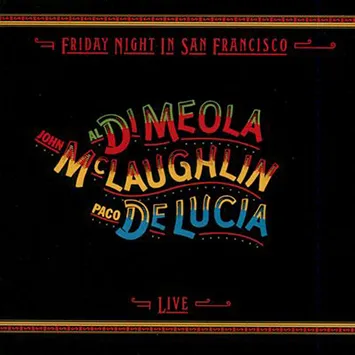
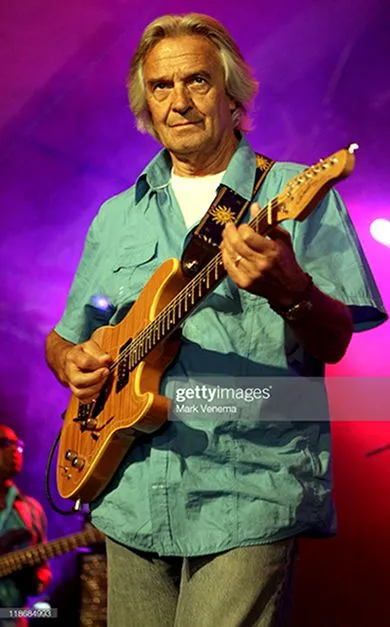
Translated with the help of DeepL

Awakening
Mahavishnu Orchestra: John McLaughlin (guitarra eléctrica), Jerry Goodman (violín), Jan Hammer (teclados, órgano), Rick Laird (bajo eléctrico) y Billy Cobham (batería, percusión). Extraído del álbum The Inner Mounting Flame (1971).
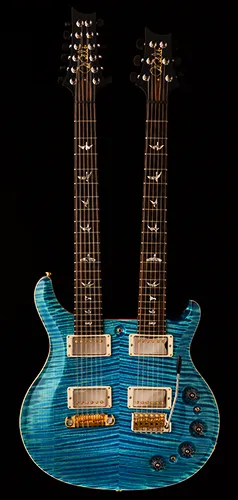
℗ Columbia Records
